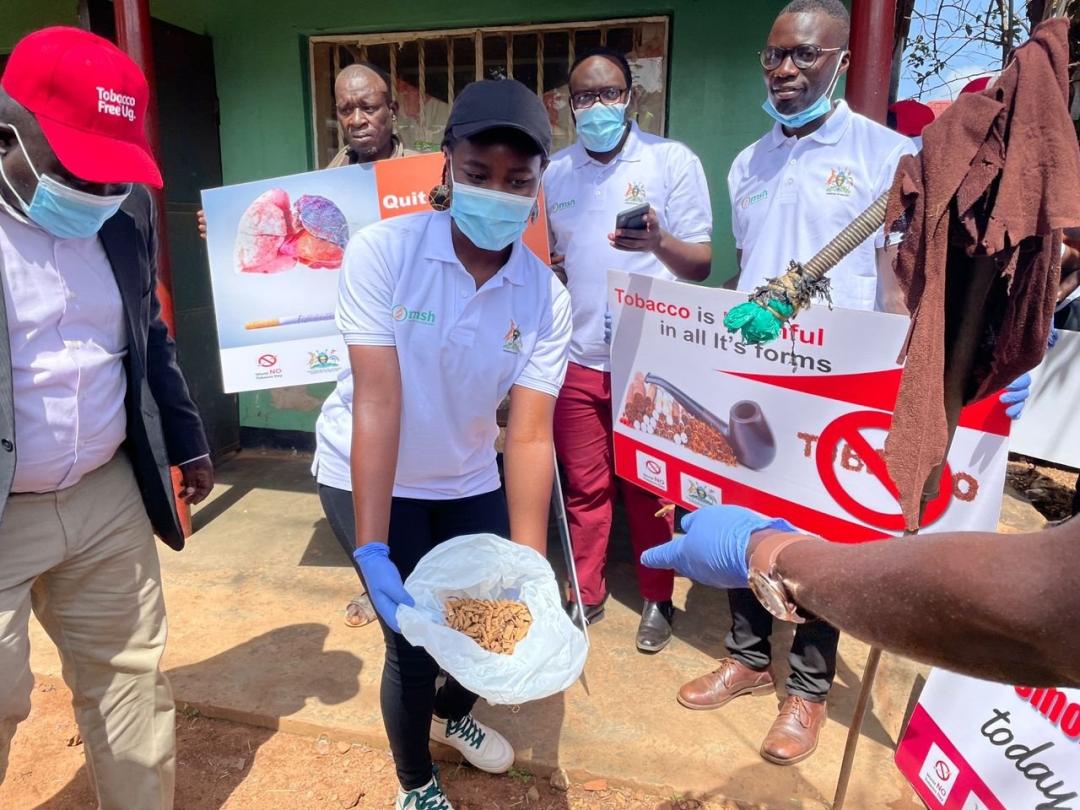Anti-tobacco initiative yields results
Kampala ‒ Namudu Kareen*, 30, an anti-tobacco advocate in Uganda, was forced to face up to the impact of smoking on her health when her damaged lungs could not supply the necessary oxygen she needed after undergoing surgery in 2022. She needed a ventilator, a machine to help her breathe. The eldest of five children, she stopped smoking a year later and committed to encouraging others to follow suit.
"I started smoking at 20 when hanging out with my friends. I wanted to show that I was all grown up. My parents never talked to me about the health risks. So long as it was my own money I was using to buy cigarettes, no one cared,” she recalls.
“WHO will continue to work with stakeholders to support the enforcement of tobacco legislation.” Dr Hafisa Kaksule, WHO technical officer for communicable and noncommunicable diseases.
Kareen is among an estimated more than 1.7 million adult tobacco users in Uganda, 13 000 of whom die annually from tobacco-related diseases.
Tobacco consumption has severe negative impacts on the health of users. “Smoking is the leading modifiable risk factor for noncommunicable diseases, including heart attack, stroke, chronic lung disease, cancer and diabetes,” says Dr Yonas Tegegn Woldemariam, WHO Representative in Uganda.
In 2007, Uganda signed the WHO Framework Convention on Tobacco Control, a legally binding treaty that requires countries to implement evidence-based measures to reduce tobacco use and exposure to tobacco smoke. In 2015, the country passed its Tobacco Control Act, which regulates tobacco products and their use, including in public places.
“Since I quit smoking in 2022, I've been raising awareness… about the negative impacts of smoking on health.” Namudu Kareen, anti-tobacco advocate
These dual interventions have delivered notable results, according to Dr Hafsa Lukwata, Head of the Ugandan Health Ministry’s Mental Health Division. "Since the law came into force, smoking prevalence has fallen from 7.9% in 2014, to 3.8% in 2022," she says.
Despite the successes, however, enforcing the law has not been easy. Lukwata says the challenges include the growing popularity of new tobacco products such as shisha (a molasses-based tobacco product heated and inhaled through a waterpipe) and the lack of resources to extend deployment of law enforcement officers to remote areas.
WHO has played a key role in supporting the Ugandan government’s efforts, building the capacity of tobacco control focal people in government entities since 2015. In 2022, the Organization trained 157 law enforcement officers and 15 national trainers from five districts to raise awareness and help enforce the smoking ban in public places.

"WHO will continue to work with stakeholders to support the enforcement of tobacco legislation, including the prominent display of 'No Tobacco' signs and the prohibition of designated smoking areas," says Dr Hafisa Kaksule, WHO technical officer for communicable and noncommunicable diseases.
For Kareen, her crusade is ongoing, including persuading a close friend to also stop smoking. “Since I quit smoking in 2022, I've been raising awareness among my family and friends about the negative impacts of smoking on health,” she says.
*Name changed to protect identity
Communications Officer
WHO Uganda
Email: tcheutchouae [at] who.int
Media Relations Officer
WHO Regional Office for Africa
Email: dalalm [at] who.int
Tel: +254 703 245 761 (WhatsApp)
